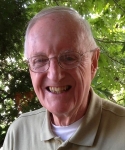
by Joseph Nangle, OFM
Pax Christi USA Ambassador of Peace
This week, May 16-25, the Vatican or more specifically the Dicastery for Promoting Integral Human Development, is celebrating Laudato Si’ Week, bringing to a close the Laudato Si’ anniversary year. On October 4th this year, at the end of the liturgical Season of Creation, the seven year Laudato Si’ Action Plan will be launched.
During this year these posts have featured the several goals which Pope Francis has set for this major campaign across the Catholic world and beyond. Last week, for example, the goal of Ecological Education was considered. The week before it was Simple Lifestyles. Beginning October 4th, all of the seven goals will be fleshed out with action plans for each.

This week, a consideration of the sixth goal, Ecological Spirituality.
The authors of liberation theology coined a unique phrase when writing about the spirituality which to this day underlies their thinking: “a political reading of God’s word”. Their meaning had nothing to do with partisan politics but rather a reading of the Scriptures from the point of view of “the polis” (the people). This was the starting point for their methodology: how to read the Bible based on social analyses especially of poor, marginalized, discarded masses of human beings in our world.
This distinct way of thinking about our life in God – our spirituality – translates easily to ecology. In other words: to an ecological reading of God’s word. This beginning point for an Ecological Spirituality offers a new richness to our faith life and to all people of good will.
Take for example the insight of a pioneer in a faith-oriented ecological point of view. This person held that God’s first revelation of God’s self is creation. Before any holy writings came into being, humanity could know the Holy Mystery, for whom there is no name, by studying the natural world.
In the same vein, theologian Elizabeth Johnson has written a book entitled, curiously, Ask The Beasts. On the jacket of her book is a quick summary of its thesis, namely that understanding and reverence for the natural world is an intrinsic element of faith in God. The title, Ask The Beasts, refers to the book of Job where his sufferings have become the sport of scoffers and reason to doubt God. Job replies to their cynicism with the words: “…ask the beasts to teach you, and the birds of the air to tell you; or the reptiles on earth to instruct you and the fish of the sea to inform you. Which of all these does not know that the hand of God has done this? In God’s hand is the soul of every living thing…” (Job 12:7-10)
Numerous times in the Gospels we encounter Jesus pointing to the natural world in order to teach about his Creator and God’s will for humanity. “Lilies of the field; birds in the air; wheat and weeds” – the list goes on and on pointing to spiritual realities which these sisters and brothers provide.
Also, the Catholic sacramental system depends on ecological metaphors. Water, oil, intercourse, touch, bread and wine. As the Offertory Prayer says as each Eucharist unfolds: “blessed are you Lord God of all Creation, for through your goodness we have this bread and wine to offer you, fruits of the earth…”

A final reflection here stretches our ecological spirituality to its current limits. In our times another created reality has enriched human consciousness in the “discovery” of the cosmos. The Hubble Telescope launched in 1990 is the first major optical observatory to be placed in space. For the moment it is “the ultimate mountain top”. We now have the capacity to view what no other generation has – the vast expanse of the universe with all its marvels and mysteries. Our spirituality has the benefit and the challenge to contemplate “God, the Creator of all this!”
A spirituality like no other in the evolving history of humankind!
____________
Joe Nangle OFM is a Pax Christi USA Ambassador of Peace. As a member of the Assisi Community in Washington, D.C., he is dedicated to simple living and social change. Joe also serves as the Pastoral Associate for the Latino community at Our Lady Queen of Peace, Arlington, Virginia.
